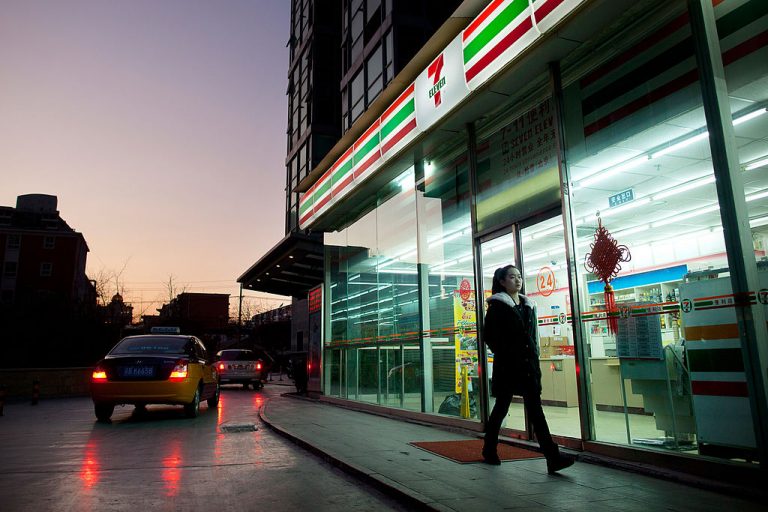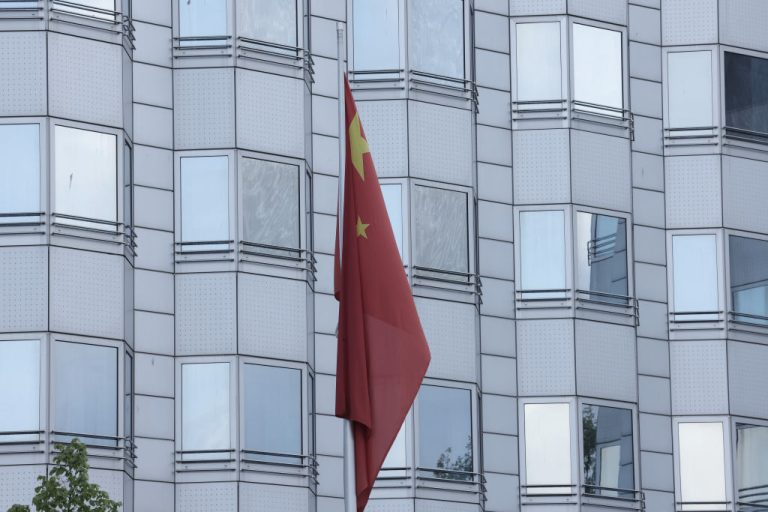The Beijing municipal government has fined its local 7-Eleven convenience stores over its website depicting maps featuring Taiwan as a country and including “inaccurate” frontiers for Xinjiang and Tibet.
Besides an official warning, 7-Eleven Beijing was fined 100,000 yuan (US$15,689) for “errors” including the “wrongful act of assigning Taiwan province as an independent country” on its online map and an additional 50,000 yuan (US$7,844) for the offline version, totaling 150,000 yuan ($23,533), the Dongcheng branch of the Beijing Municipal Planning and Natural Resources Commission announced in a statement on Dec. 21.
“Incomplete Chinese maps used by foreign brands have stirred anger in Chinese society in recent years,” Beijing’s mouthpiece, the Global Times, remarked.
“I am not aware of the situation you mentioned,” Foreign Ministry spokesperson Wang Wenbin said at a press conference on Jan. 7 when asked about the fine.
“I would like to reiterate that Taiwan is an inalienable part of the Chinese territory and the one-China principle is a universally recognized norm in international relations and the consensus of the international community,” Wang said.
Success
You are now signed up for our newsletter
Success
Check your email to complete sign up
Beijing also complained about erroneous borderlines in the Aksai Chin region in the far west and southern Tibet – both of which China has controversies with India over.
Local authorities also contended that the 7-Eleven website failed to use China’s proper names for some disputed islands in the South China Sea, including the Diaoyu islands, or Senkaku Islands as Japan administers the islands calls them.
Apologies
According to its website, 7-Eleven Beijing operates over 260 shops in Beijing and over 140 in the nearby city of Tianjin. It is controlled by 7-Eleven (China), which is a subsidiary of Japanese firm 7 & i Holdings.
Seven & i “is taking the issue seriously and making sure to prevent a recurrence,” the company’s spokesman said, according to The Straits Times.
The penalty was handed down in December but was first reported on by Asia Nikkei on Jan. 7.
READ MORE: US Defense Act Makes Provision for Taiwan’s Participation in RIMPAC Naval Exercises
READ MORE: Nicaragua Ends Diplomatic Relations With Taiwan, Recognizes Beijing Under ‘One-China’ Policy
Many Global Times readers commented in favor of the fines issued by authorities, saying, “150,000 Yuan ($23,505) fine is just nuts for a big corporation, it equals to 32 Yuan fine for a common person.”
A user going by the Western sounding name, Bill Admon said, “But I’m glad to see that China is empowering its rights in the international sphere,” adding that, “Foreign corporations still haven’t learnt that if they want to be welcomed guests, they must behave like polite and respectful guests!”
Several other companies operating in China – from Daimler AG to airlines including United Continental Holdings Inc and ANA Holdings Inc – have apologized and updated their websites depicting Taiwan as a unified part of China.
In 2018, U.S. clothing company The Gap apologized and swore to take more “rigorous reviews in the future” after one of its T-shirt models was embellished with a map of China that did not incorporate Taiwan, which “sparked outrage among Chinese netizens,” The Global Times reported.
In 2019, a similar scenario happened to MAC Cosmetics, a U.S. cosmetics retailer, which also had to give in to pressure after posting a map of China that omitted the island of Taiwan.







